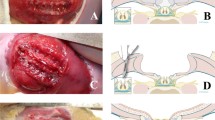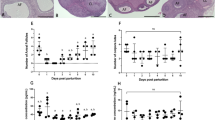Abstract
GAL1 has suggested that hormonal pregnancy tests may be teratogenic to the developing central nervous system. In a study of 100 mothers of spina bifida cases she found nineteen of these mothers had had a hormonal pregnancy test (‘Amenorone Forte’ or ‘Primodos’) compared with four of 100 “matched” control mothers. Laurence2 has criticized Gal's findings on two counts: (1) the choice of controls, and (2) the possibility of finding a difference this great by chance when a number of epidemiologic factors are studied.
This is a preview of subscription content, access via your institution
Access options
Subscribe to this journal
Receive 51 print issues and online access
$199.00 per year
only $3.90 per issue
Buy this article
- Purchase on Springer Link
- Instant access to full article PDF
Prices may be subject to local taxes which are calculated during checkout
Similar content being viewed by others
References
Gal, I., Nature, 240, 241 (1972).
Laurence, K. M., Nature, 240, 242 (1972).
Lemire, R. J., Teratology, 2, 361 (1969).
Author information
Authors and Affiliations
Rights and permissions
About this article
Cite this article
SEVER, L. Hormonal Pregnancy Tests and Spina Bifida. Nature 242, 410–411 (1973). https://doi.org/10.1038/242410a0
Received:
Issue Date:
DOI: https://doi.org/10.1038/242410a0
This article is cited by
-
Oral progestogen versus intramuscular progesterone for luteal support after assisted reproductive technology treatment: a prospective randomized study
Archives of Gynecology and Obstetrics (2008)
-
Anencephalus and spina bifida: An ecological approach
Human Ecology (1976)
Comments
By submitting a comment you agree to abide by our Terms and Community Guidelines. If you find something abusive or that does not comply with our terms or guidelines please flag it as inappropriate.



